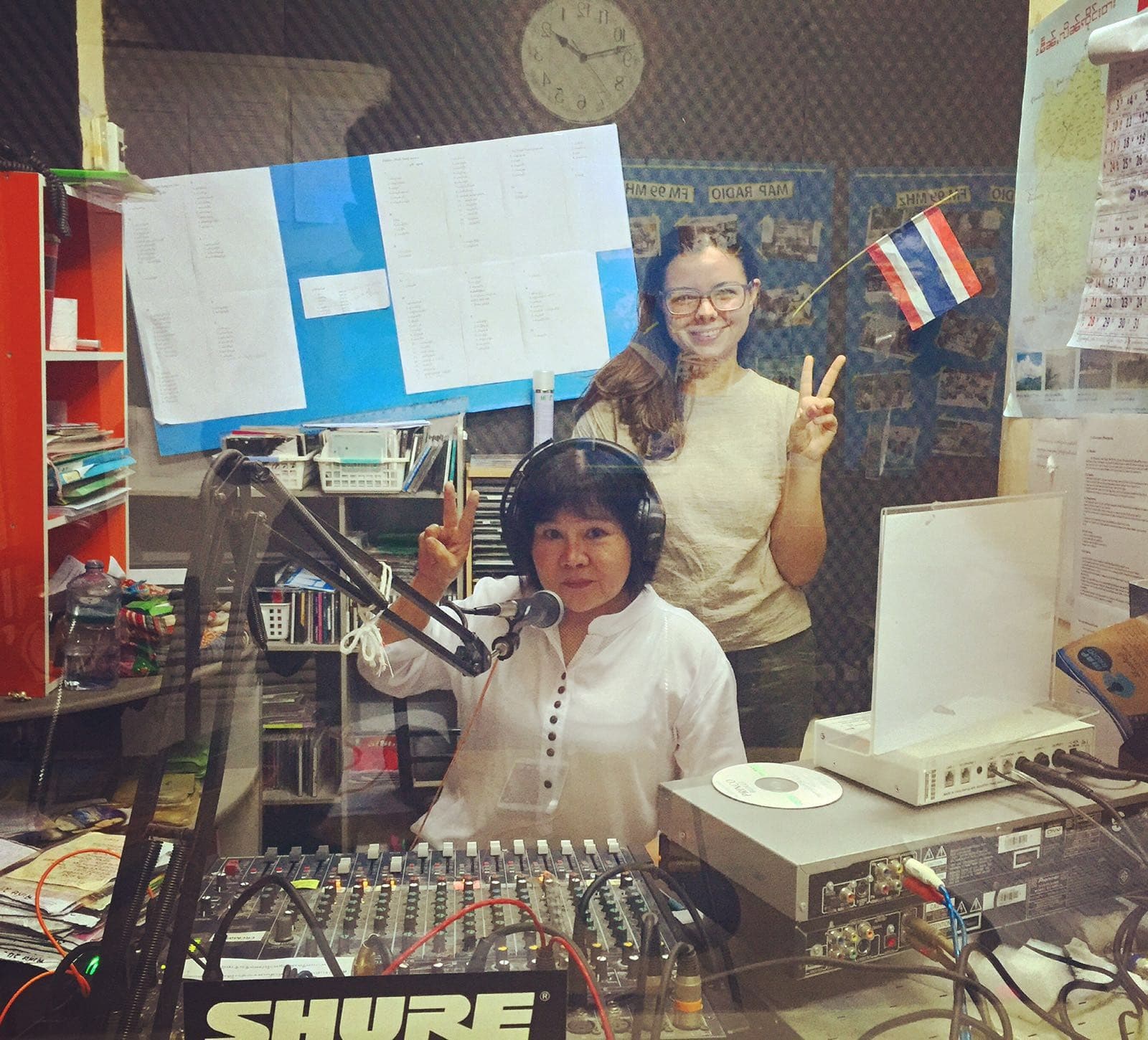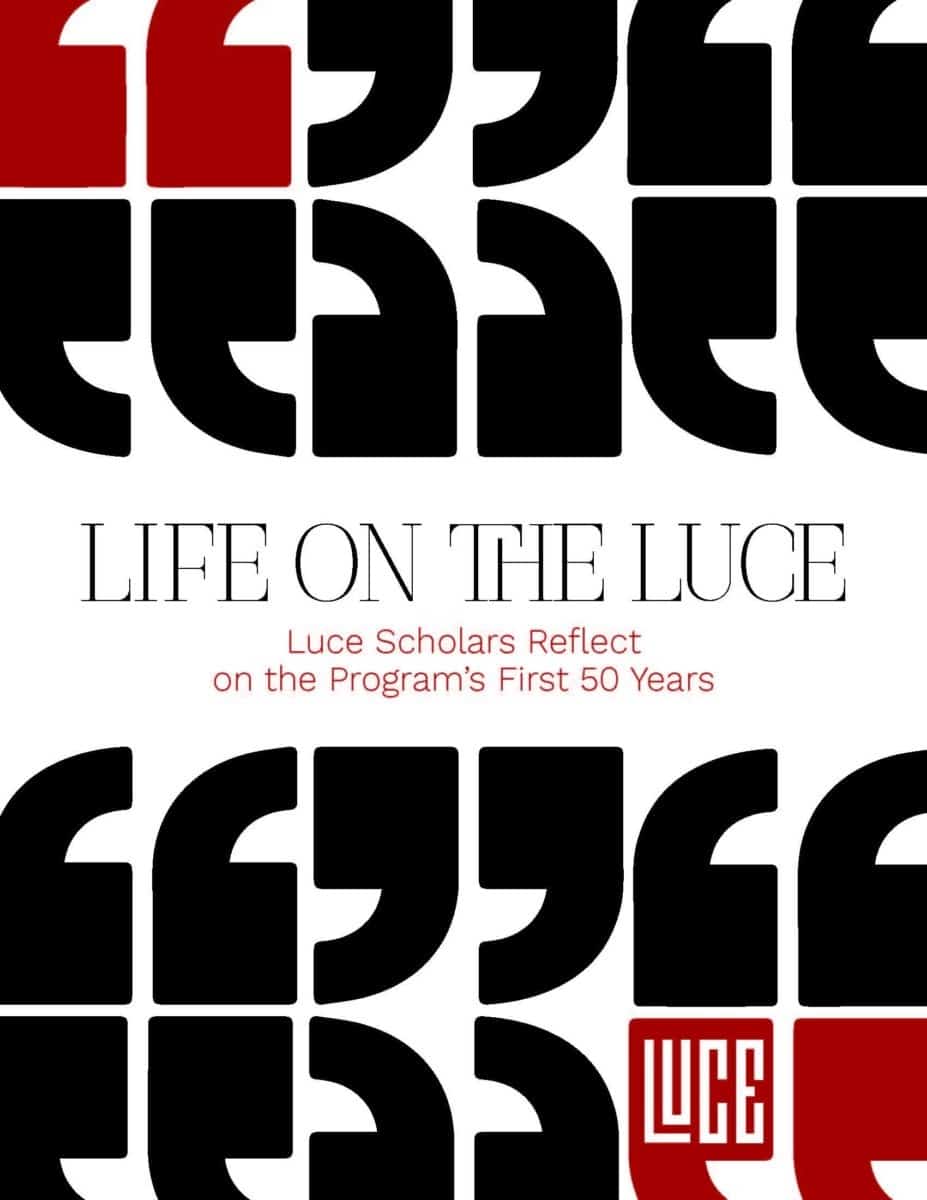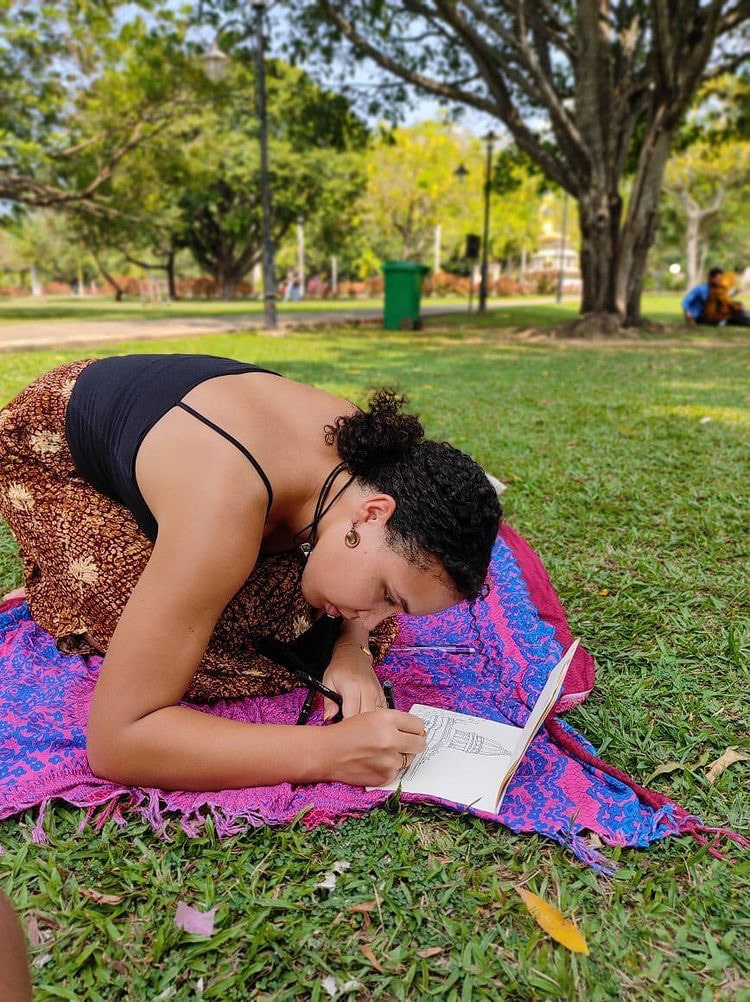In my first month in Chiang Mai, Thailand, I asked to sit in on a Thai radio programming broadcast by my placement, a grassroots organization called the Migrant Assistance Program (MAP) that seeks to empower migrants from neighboring Myanmar. At that point, I hadn’t started at MAP yet, and I thought the experience would be good practice for picking up the five tones of the Thai language. I was greeted energetically by Pii DJ Jan Dtip (“Pii” being the honorific one uses in Thai to address someone older than oneself). Although my Thai was very basic just a month into my Luce year, I had been in Chiang Mai long enough to know that a huge smile goes a long way.
I set myself up on the other side of the glass from where Pii DJ Jan Dtip sat, and I must have understood all of 7% of what was being broadcast over the radio in the program’s first hour. Just as my mind began to wander, I heard Pii DJ Jan Dtip intermittently say “Isaaaaa” (my nickname in rising tone), farang (ฝรั่ง: the Thai word for western foreigners, mid tone), and “I love youuuu” (spoken in English, rising tone) over the airwaves. Of course, I thought, “I must have imagined it. I’m here to be a fly on the wall.” Alas, I had not imagined it. I was very much in the room, and Pii DJ Jan Dtip had been quick to notify her audience of that undeniable fact.
Sometime during the second hour, Pii DJ Jan Dtip knocked on the glass between us and beckoned for me to join her on the other side where she sat holding up a phone receiver—a call-in listener hoping to speak to me.
“Hello (สวัสดี)?” I ask in Thai.
“Hello, Isaaaa. I love youuuu!” someone says in English on the other line.
In Thai, I ask, “What’s your name? Where do you live? What’s your favorite food?” Then I run out of questions and say thank you and goodbye. I hang up. Pii DJ Jan Dtip laughs because it’s funny. I laugh because I’m confused.
Little did I know that this moment would mark the beginning of my journey navigating a new environment.
At MAP, I’ve had the unique experience of working alongside Shan (an ethnic group in Southeast Asia) and Myanmar migrants in Thailand—all of whom are well versed in the intricacies of navigating a new environment. My primary role within MAP has been to document the work of my colleagues in schools, hospitals, and the larger community as they connect migrants to the support services they need. I’ve been fortunate to receive the same patience and empathy from my co-workers that it takes to do that work as I learn what it means to live well in Thailand, specifically for those with limited, or no, legal status in the country.
Throughout this process, the phrase I dreaded most in the English language, “I don’t understand,” has become a great tool in Thai. “I don’t understand. Please speak slowly (ไม่เข้าใจ กรุณาพูดช้า ๆ).” I’ve grown accustomed to admitting my lack of knowledge and embracing my role as a beginner. In doing so, I’ve created space for new knowledge to build upon itself. With six precious months left in my Luce year, I look forward to more learning and laughable moments to come.


